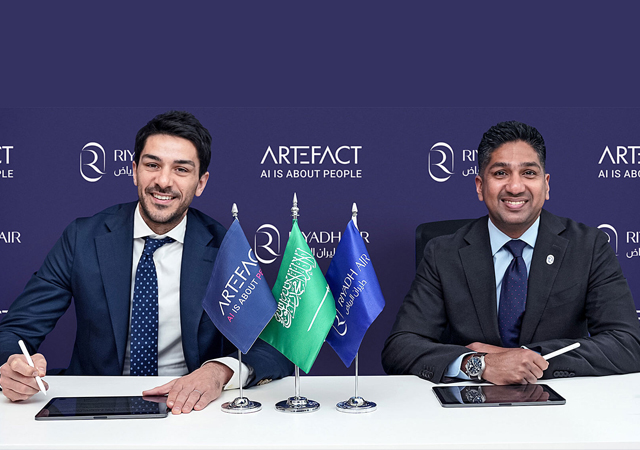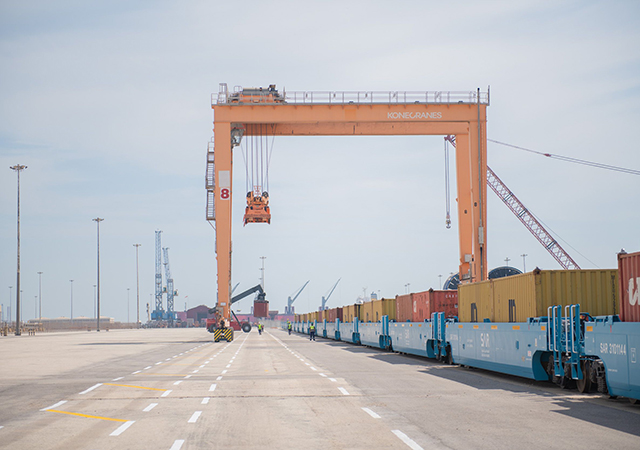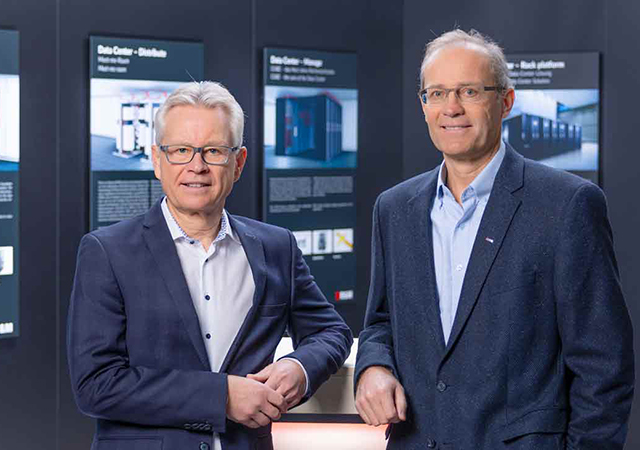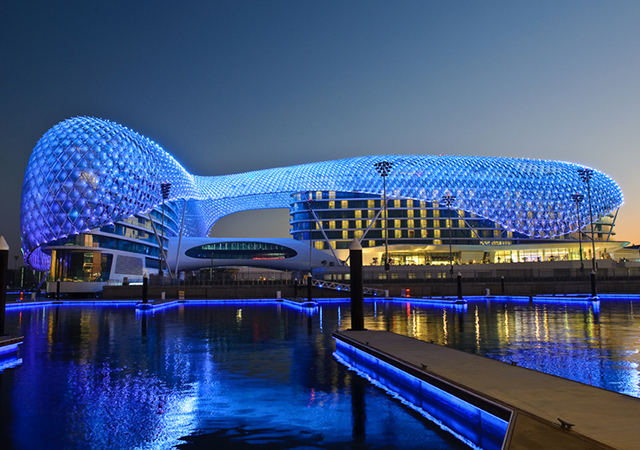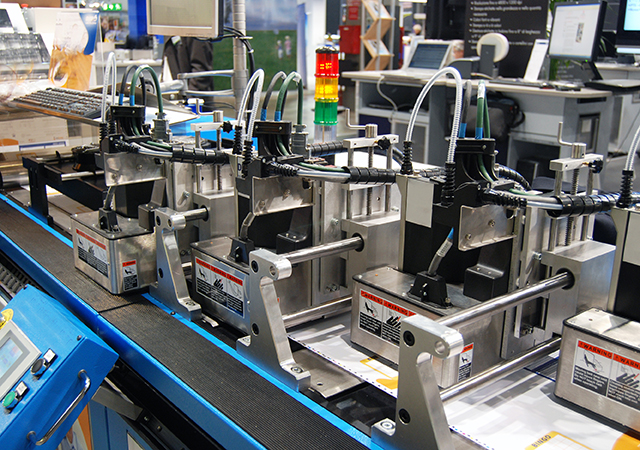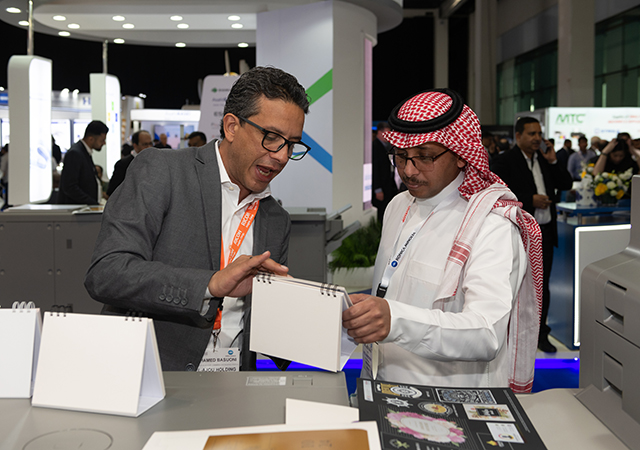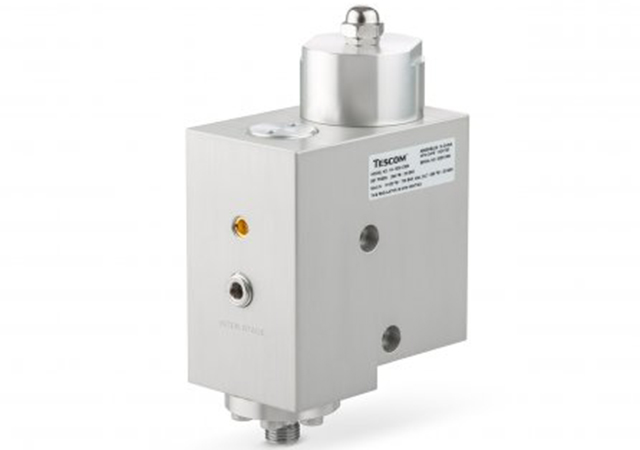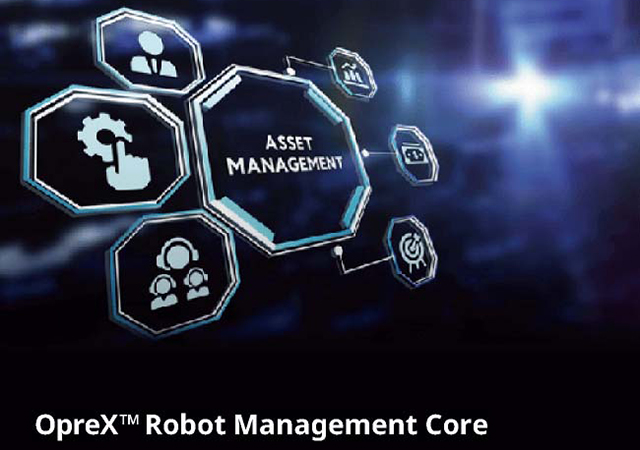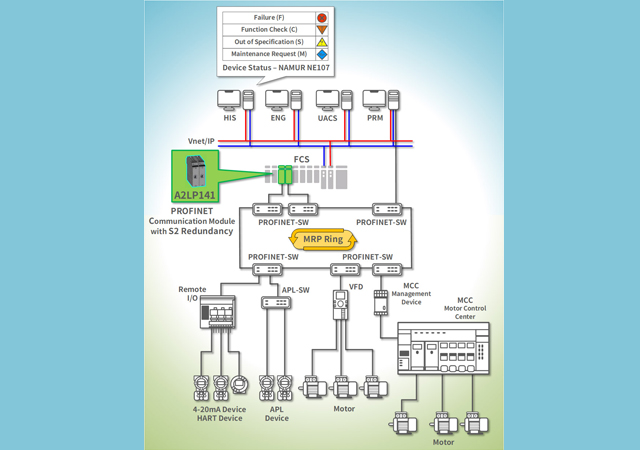
 Jose Diaz-Caneja (centre), MD- Acciona Agua signing the contract to finance, design and build the ne
Jose Diaz-Caneja (centre), MD- Acciona Agua signing the contract to finance, design and build the ne
Acciona, a global group that develops and manages sustainable infrastructure solutions, vouches by the main pillars of its growth strategy for the GCC region, which it said are: `the specialisation and the sustainability’.
The Spanish contractor, which is a leading company in the development of water infrastructure, is currently working on a number of prominent projects in the GCC, including the Shuqaiq 3 Independent Water Project (IWP) seawater reverse osmosis (SWRO) desalination plant being developed for Saudi Arabia’s Water and Electricity Company (WEC).
“Acciona´s in-house engineering capabilities along with the support of our research and development (R&D) division are the driving factors of our growth strategy. We aim to provide our clients the best digital and technological solutions coupled with an open-minded approach. We find that these values are perfectly aligned with the vision, needs and goals of the leaders in the GCC,” Julio de la Rosa, business development director for the Middle East at Acciona Agua told the Gulf Industry in an exclusive interview.
 |
|
De la Rosa: aiming `zero environmental footprint’ |
“Acciona will remain committed with this vision implemented all around GCC countries to secure the water needed with the highest quality standards and the lowest environmental footprint in a competitive way. We would like to increase our participation as developers in long term water services either under pure operation and maintenance (O&M) or Concessions, which shall allow us to secure recurrent revenues and to reinforce the regional structure,” De la Rosa added.
The Shuqaiq 3 IWP will generate 450,000 cubic-metre-a-day (cm/d) of water, serving a population of approximately two million. The plant will use reverse osmosis (RO) membrane technology, and will be developed in the town of Shuqaiq, located on the Red Sea coast about 137 kilometres north of Jizan in Saudi Arabia.
Reverse osmosis-based desalination plants, which are independent and do not require a fire-based power plant to operate, are gaining traction in the kingdom, reflecting a wider trend towards renewable energy.
“Generally speaking, the oceans are an abundant and reliable source of water and the Middle East has an extensive coast. Therefore, the traditional water scarcity in the Middle East can be dealt with by the modern seawater desalination facilities. The Seawater Reverse Osmosis (SWRO) technology is the most energy efficient way to desalt seawater and the Middle Eastern regional governments are now profusely using it in almost all of the new generation plants. There are several initiatives to decouple water and power generation facilities in favour of the stand-alone reverse osmosis plants. The trend to increase the generation of energy through renewable energy sources --and even the nuclear power plants-- in the Middle East are all conducive to the adoption of the SWRO technology as the new standard,” he commented.
Elaborating on the Shuqaiq project, which is projected to begin operations in Q4 2021, De La Rosa said: “Our client, the Saudi Water & Electricity Co (WEC) has bet for the two clear advantages that the RO membrane technology brings when compared with other “thermal” desalination technologies. The first one is the reduced Specific Energy Consumption (SEC). While the RO´s SEC is below 3.5 Kwh/ cm/d, the thermal technologies SEC is more in the range of 8-9 Kwh/ cm/d (including the equivalent thermal Kilowatts required). The second factor is the lower environmental footprint for the RO based on recovery factor. The recovery factor measures how much potable water is produced per cm/d of raw marine water treated. The higher the recovery ratio, the less amount of raw seawater is required and thus the more efficient. RO technologies nowadays achieve between 40 per cent to 50 per cent total recovery ratio while thermal technologies are more in the 25 per cent to 35 per cent range.”
DRIVING TECHNOLOGY
According to De La Rosa, Acciona is a world leader in the reverse osmosis desalination technology for the last 40 plus years and is continuously driving the adoption of latest technology in the region.
 |
Acciona: investing in R&D |
“The RO is clearly dominating the water desalination market now. Acciona is continuously investing in R&D of highly resource-efficient desalination techniques,” he said.
“We are aiming to pave a new way where the seawater that is subtracted from nature is fully converted either into water amenable for different uses or valuable products that can be used internally or valourised in other industries towards a “zero environmental footprint”.
“For example, we are working in brine concentration techniques through chemical precipitation plus ceramic membranes for ultrafiltration and Nano filtration. All that followed by membrane distillation. The final output would produce a greater water yield with Calcium and Magnesium recovery that can be reutilised in further Remineralisation phases, with zero brine discharge.
Acciona is also implementing the latest digital and Artificial Intelligence (AI) technologies in all of its currently under operation plants and designs it new plants in the same way to monitor and optimise in real-time the change of any parameters in its plants. “By this means, we can optimise the decision-taking procedures in the best interest of the project and the environment,” De La Rosa elaborated.
GCC A KEY REGION
For the Spanish firm, the GCC has become a key region due to the number of contracts awarded and the volume of the activity deployed by its company not only in the EPC and O&M sectors but also as developers of Independent Water Projects (IWP). The best example is the Saudi Water & Electricity Co (WEC) Shuqaiq-3 IWP.
“We are proud to say that 2018 and 2019 are being outstanding and fruitful years for our EPC, O&M and development activities since we were awarded with four projects in the GCC with three of them in Saudi Arabia. The latest additions to our long reference list are the DEWA´s SWRO in Jebel Ali (Dubai), the SWCC´s projects in Al Khobar and the WEC´s IWP Shuqaiq-3 totaling more than 1,400 MLDs (1,400,000 cm/d) of desalination capacity,” he said.
Regarding the O&M operations, Acciona is performing the O&M of three large desalination plants within the GCC region totaling more than 580 MLDs (580,000 cm/d) which supply potable water to around two million people in a daily basis.
According to De La Rosa, at present, Acciona has the largest number of projects in Saudi Arabia and therefore has become and will continue to be its key market. “It is crucial to understand the particularities of Saudi Arabia, a market being focused on its Vision 2030 and the National Transformation Program. Acciona is showing its commitment to Saudi Arabia and building a long term a relationship while always retaining our competitiveness,” he added.
Giving more examples of overcoming significant challenges, specifying the technologies and procedures it used, De La Rosa said that Acciona has been able to achieve record-low figures for the Specific Energy Consumption (SEC) at its Emirates Sembcorp Water & Power Co facility titled Fujairah-1 SWRO in the UAE of less than 3Kwh/ cm/d. “This was achieved thanks to the implementation of cutting-edge technologies and the teamwork approach between our Client, the consultant ILF and Acciona,” he added.
Acciona’ s latest award besides the ones in the Middle East are the Waste Water Treatment plant of Nhieu Loc Thi Nghe in Vietnam of 480 MLDs capacity. The scope of the project is full EPC and five years O&M. This will be the first project of Acciona in Vietnam and will reinforce its presence in the South East region.
“We keep ourselves busy by tendering in most of the important water projects worldwide and we do expect to secure more projects before this year ends,” he added.
Acciona is operating and maintaining several SWRO facilities in the GCC. One example is the Fujairah 1 RO Expansion that it designed and built back in 2015. Acciona has the contract for the O&M of this facility for a total of seven years.


